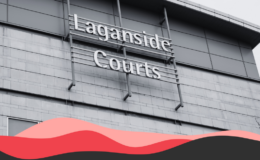- The High Court found that the core curriculum for RE lacks objectivity and promotes Christianity, in breach of human rights
- However, the Court made no ruling on whether this amounts to discrimination
- This ruling only applied to controlled, grant-aided primary schools – not schools in general
On July 6, the Facebook account Progressive Politics NI posted that:
“The High Court in NI has ruled that the Exclusively Christian focused [focus] of religious studies in schools is discriminatory
“Schools should now teach about Christianity, as well as other religions, but [children] should not be indoctrinated into being Christian.”
This is a somewhat inaccurate reading of the court ruling.
Following a judicial review brought by the family of a primary school pupil, the High Court did find that the core curriculum for religious education (RE) at primary level and the current model of collective worship are in breach of human rights stemming from the European Convention on Human Rights (ECHR).
This is because both the RE curriculum and collective worship have a Christian focus, lack objectivity, make no effort to discuss other faiths or religion in general, and have the effect of promoting Christianity.
However, the ruling explicitly said that no determination was made on whether the curriculum was discriminatory.
Furthermore, the Court’s ruling only applies to state controlled, grant-aided primary schools – a qualification not noted by Progressive Politics NI – because that was the legislation central to the judicial review.
The Court also decided against quashing the existing laws for the teaching of RE, instead referring to an ongoing comprehensive review by the Department of Education into the entire education system in Northern Ireland.
While the ruling said that curricula should fully comply with human rights law, it also made clear that the outcome of the Independent Review of Education is a matter for the Department and the Northern Ireland Executive, not the courts.
Challenge
A father and daughter sought judicial review of teaching arrangements for RE and collective worship in controlled primary schools due to family concerns about the daughter being taught a Christian worldview in RE.
Proceedings were brought against the school and the Department of Education seeking the delivery of education (including RE) that is appropriately objective, critical and pluralistic, having regard to the age of their daughter.
The subject of the judicial review was legislation providing the legal framework for RE in controlled and grant-aided schools and giving legal effect to the core syllabus for RE.
The family said certain parts of these laws were incompatible with their human rights, in particular Article 2 (right to education), Article 8 (right to respect for private and family life), Article 9 (right to freedom of thought, conscience and religion) and Article 14 (prohibiting discrimination) of the European Convention on Human Rights (ECHR).
The High Court decided the relevant laws breached the rights of the father and daughter under Article 2 of the First Protocol to the ECHR, when read with Article 9 of the ECHR, and were unlawful.
Ruling
The High Court found that the teaching of the core syllabus at primary level promotes Christianity and encourages its practice.
The syllabus, which was drafted by the four main Christian Churches in Northern Ireland, does not refer to any other faiths until Key Stage 3 (secondary school).
The Court concluded RE in controlled, grant-aided primary schools is not conveyed in an objective, critical and pluralist manner, and does not give equal weighting to a variety of faiths and beliefs. The Court also came to the same conclusion for the delivery of collective worship as this involves reading Bible based stories and learning Bible-based songs.
Because of this finding, the Court declined to make further rulings on this case – including under Article 14. This means the court made no decision on whether the current forms of RE and CW are discriminatory. Furthermore, the court held that the daughter had not been denied the right to an education.
Consequences
The Court did not quash the legislation or declare the legislation incompatible with the relevant ECHR rights, as was requested by the family. Instead it said the core curriculum and associated laws need to be reconsidered for the teaching of RE and collective worship, and should be ECHR compliant.
The Court noted the Department of Education is currently undertaking a review of the curriculum, as part of the comprehensive Independent Review of Education.
The Review started after the creation of an Independent Panel in September 2021. It is expected to take a period of 18 months, with an interim report available after 12 months.
The High Court judgment is available in full or in summary.




